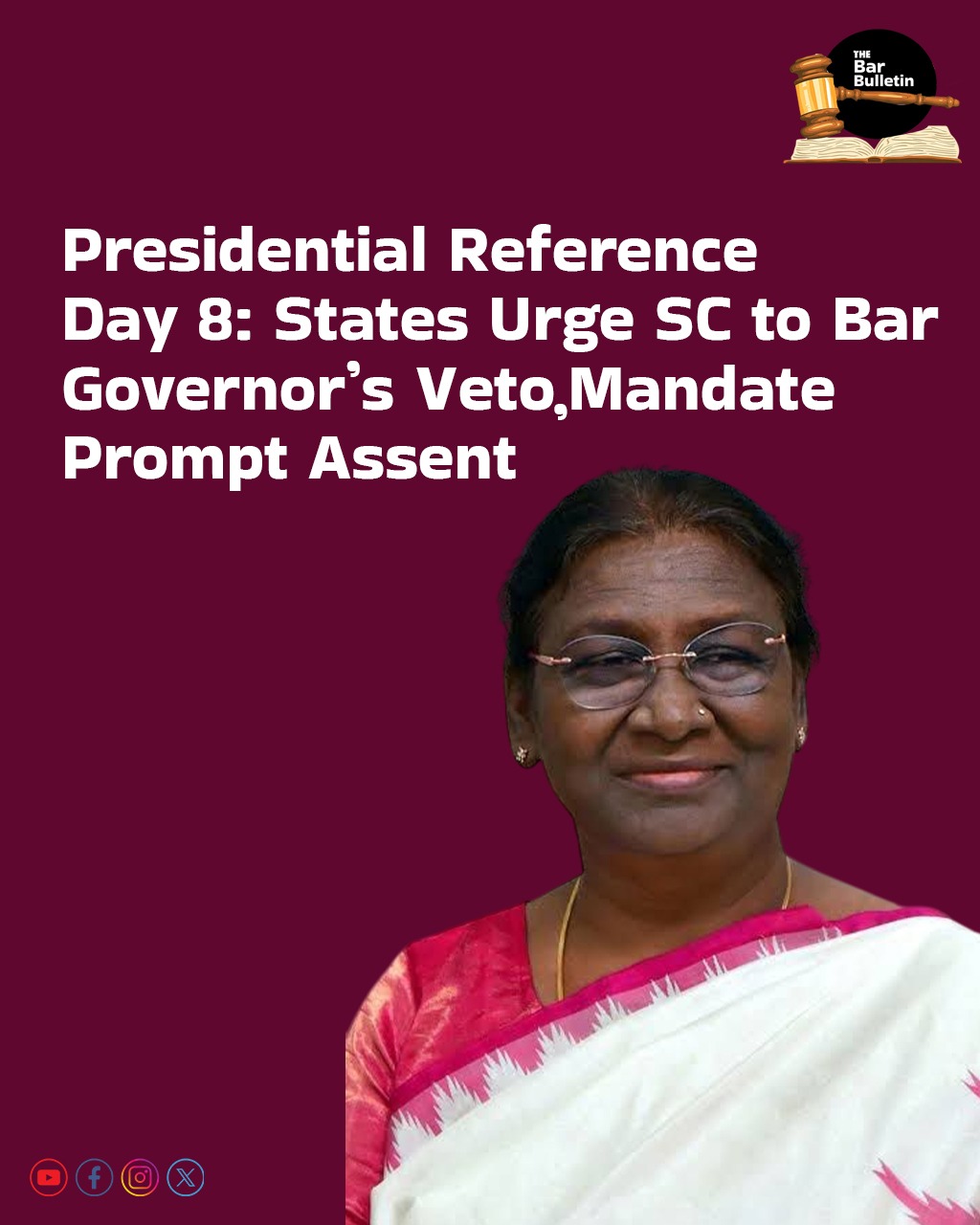On September 9, 2025, the Supreme Court resumed hearings on the Presidential Reference concerning Article 200. Senior Advocate Gopal Subramaniam (for Karnataka) argued that the 42nd Amendment makes it clear that Presidents and Governors are bound by ministerial advice. He rejected the Union’s claim that Governors enjoy a legislative veto, stressing that withholding assent is only to return a bill for reconsideration, after which assent is mandatory. He further warned that Article 143 cannot be used to indirectly overturn binding precedent under Article 141.
Senior Advocate KK Venugopal (for Kerala) emphasized that Governors must act “forthwith,” especially with money bills where delay would paralyze governance. He said the Governor plays a collaborative role with the legislature and cannot act as an adversary. Senior Advocate Arvind Datar (for Punjab) stressed that Governors have no independent discretion—only three options under Article 200. He cautioned that indefinite withholding would create a “constitutional paradox” and urged the Court to impose a reasonable timeline, suggesting three months as a constitutional benchmark to protect legislative certainty.
Senior Advocate Niranjan Reddy (intervenor) traced Constituent Assembly debates showing that discretionary powers for Governors were consciously rejected. He submitted that Articles 111 and 200 are mirror provisions, requiring Governors to follow the same convention of prompt assent as the President. He urged the Court to use advisory jurisdiction constructively by clarifying that Governors must act within a reasonable, preferably three-month, period to uphold the doctrine of constitutional trust and ensure harmony between legislatures and the executive.
The hearing will continue tomorrow, September 10, 2025.


One thought on “Presidential Reference Day 8: States Urge SC to Bar Governor’s Veto, Mandate Prompt Assent”
Pingback: Presidential Reference Day 9: SC Examines Limits on Governor’s Discretion, Concludes Sept 11